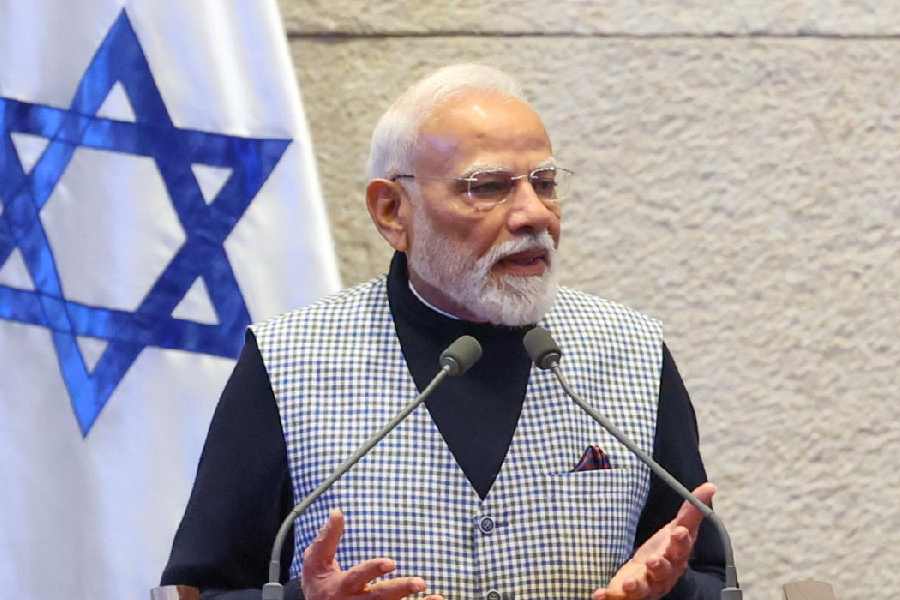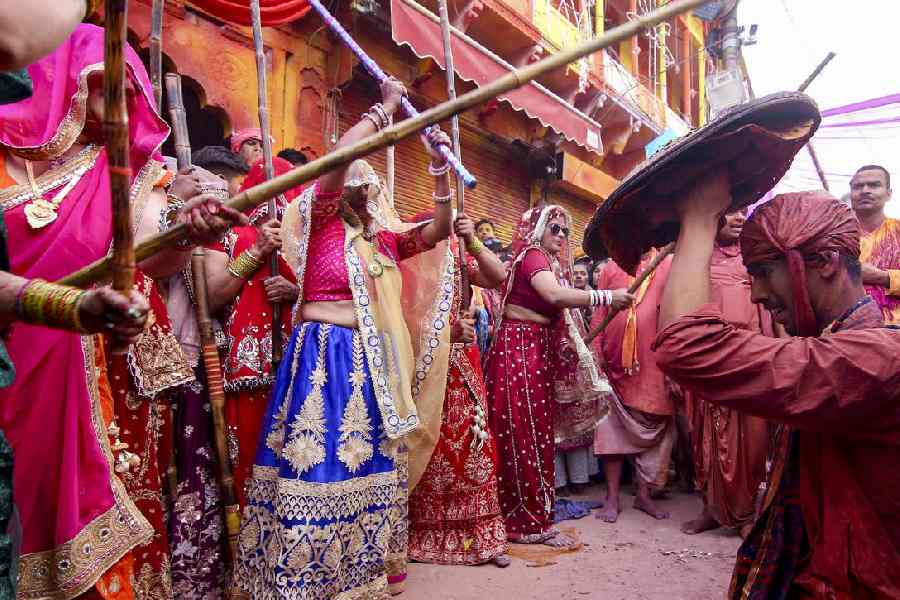Sir — Facebook had barred Australians from finding or sharing news on its platform, in response to a proposal by the Australian government that required social media networks to pay news organizations for content. The move had apparently brought down the online readership of Australian news sites. This battle is an important one; equitable control over news and its dissemination are at stake. The tech giant tried to bully the government and news organizations into giving in. The public must support the latter by buying more printed papers and reading news independently.
S. Bhattacharjee,
Calcutta
Wrong target
Sir — Poor Spiderman, Thomas Stanley Holland, drew flak for a tweet by the author, Thomas Holland, on the subject of renaming the Sardar Patel Stadium in Ahmedabad after Narendra Modi. As usual there were calls to boycott Spiderman — this seems to be the weapon of choice for trolls when it comes to foreign offenders. But one has to admit that the original tweet by the author — Holland expressed ‘admiration’ for Modi’s modesty — makes sense in a weird way. After all, none of the great sons of Gujarat, M.K. Gandhi, Sardar Vallabhbhai Patel or Morarji Desai, would have felt comfortable at the stadium in the company of Ambani and Adani — the Motera stadium has pavilions named after their respective companies. India has come a long way since the days of the freedom struggle; it is now the time of the ‘wealth creators’ aka crony capitalists.
Haridasan Rajan,
Kozhikode, Kerala
Memorable read
Sir — The article, “The trickster” (Feb 26), by Samantak Das is very pertinent. An erudite Das cleverly weaves his memory of reading Tutu-Bhutu years ago with his experiences later in life. Those who have missed out on reading the book as kids should rectify this as adults. The wonderfully educative, colourfully illustrated books by Dhiren Bal — once known as the Walt Disney of Bengal — are an indelible part of my childhood too.
In fact, like Das, Tutu-Bhutu is the first book I recall reading. My father had brought this book for me just as I did for my daughter. Such books taught us at an early age to coexist peacefully, regardless of ethnicity, religion, political beliefs, social status and so on. These books helped us develop a good character at an early age, before these lessons were imparted by parents and teachers.
Having entered into the secondary education system in the city in the early Seventies after coming from a beautiful rural village in Bengal, the psychological trauma of city life haunted me for quite some time. I dearly wished to go back to that wonderful village and spend time with Tutu-Bhutu, Hansukhoka, Bhulu, Chao-mao and others.
Bal and his creative achievements have entertained us as much as another great talent, Narayan Debnath, did. Bal was honoured by the government for creating Tutu-Bhutu — he got the Bhubaneshwari Medal, the Moumachi Award, and also an award from Sishu Sahitya Parishad. During his time at Anandabazar Patrika, he created other immortal favourites such as “Theke Habul Shekhe” and “Chenga Benga”.
Somnath Mukherjee,
Calcutta
Parting shot
Sir — It was wonderful to read the interesting article, “Bengal’s magpies” (Feb 25), by Uddalak Mukherjee. It reminded me of a novel written by the renowned Bengali author, Narayan Gangopadhyay, titled Ponchanoner Haati, which I had read years back at my school library. There was a character of a thief by the name of Potai in that novel. I still clearly remember the misadventures of Potai chor. He stole from one house after another while the police struggled to get their hands on him.
In fact, it is surprising how clear my memory of the story is even so many years after reading the book. Surely this is because of the magic that Gangopadhyay, one of the finest writers in Bengali literature, wove on the page.
Sourish Misra,
Calcutta











